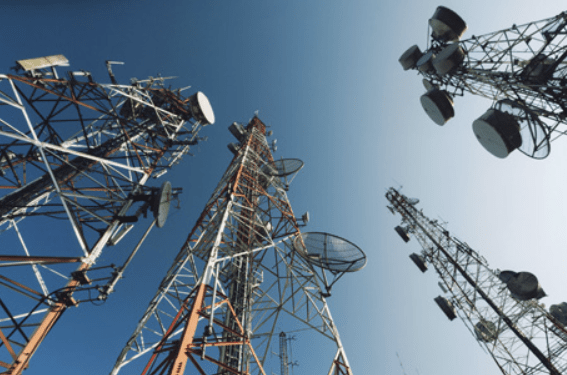Safaricom created 978,633 direct and indirect job in the year ended 31st March 2019. The company contributed KSh 601 billion to Kenya’s GDP which is about 9.6 times its annual profit for the same year. This is according to KPMG TRUE Value methodology of calculating the contribution of corporates to the GDP.
The company made profits of Ksh 62.5 billion from revenue of Ksh 250.3 billion. This was accompanied by a 7.7% growth in customer numbers to 31.8 million. Mpesa customers grew by 2.1 million to 22.6 million while the number of customers using mobile data at least once in 30 days increased to 18.8m. Safaricom is transforming lives by allowing people to connect to each other, do business and access content online.
Infrastructure investments
Safaricom’s mind-boggling performance and transformation of lives and businesses in Kenya rose from years of deliberate investments in infrastructure and responding to the needs of people, communities and businesses. “We deliver our services through 4,949 network sites that provide 96% of the population with 2G coverage, 93% with 3G and 57% with 4G”, the company said it its 2019 Sustainability Report. The company has built 6,700 kilometres Fibre Optic footprint, more than twice the 3,236 kilometres it had in 2016. This currently connects over 107,762 homes and over 5,992 businesses. It has strategic partnerships with Kenya Power and Liquid Telecom involving leasing infrastructure to enable it to run fibre optic cable over electrical and telephone lines to residential households, rather than placing them underground.
Sectorial value chains
The company had 167,083 M-Pesa Agents, 433 dealers,1,138 suppliers and 4,503 permanent employees as at the end of March, 2019. It continues to leverage the power of mobile technology to deliver shared value propositions that disrupt inefficiencies and impact lives positively in the health, agriculture and education sectors.
Agriculture
In agriculture, Safaricom’s flagship product, DigiFarm has over a million farmers on its platform with more than 300,000 being 30-day active customers. Digifarm is an integrated agriculture platform that helps agribusinesses and smallholder farmers share information and transact. It won the Shared Value Award at the August 2018 Loeries Awards held in South Africa. DigiFarm’s buyer-driven model seeks to drive behaviour change by encouraging smallholder farmers to grow crops based on market demand. Farmers are able to enjoy several services such as soil testing services, check off loan for inputs needed, yield insurance on the farm, extension services through DigiFarm Village Advisors and a ready market for their produce.
Health
In the health sector, the company’s key product is known as M-TIBA. M-TIBA is a mobile-based health proposition developed in partnership with CarePay and PharmAccess. It provides easier access to affordable healthcare for Kenyans on a lower income. M-TIBA enables customer to register for NHIF, the government run health insurance scheme, and provides an electronic wallet system to help them save towards healthcare. The e-wallet enables users to save towards healthcare expenses from as little as KSh 10. It now has over 4.4 million users, 1,405 approved health facilities countrywide, and to date over KSh 600 million has been paid out.
The company has Fafanuka, an SMS and unstructured service supplementary data (USSD) service to educate the public, patients, nurses, community health workers and caregivers on how to prevent, screen for, diagnose, manage and follow up non-communicable diseases (NCDs). It has reached 5,400 unique subscribers.
Education
The company believes in and promotes quality education for all: “Ensure inclusive and equitable quality education and promote lifelong learning opportunities for all.” Its contribution to expanding access to education through innovative solutions using its network and through partnerships has resulted in several products and initiatives. It has unstructured service supplementary data (USSD) and SMS service
Shupavu291, which enables students and teachers to take quizzes, search subjects to study and access Wikipedia summaries without an internet connection. It currently has 580,126 active subscribers and so far has been used by 4,129,058 learners since its launch in 2016.
The M-PESA Foundation Academy provides 700 economically disadvantaged students access to a high-quality education through world-class learning facilities, focused on building leadership and entrepreneurship skills.” Education is the most powerful weapon which you can use to change the world”, the late Nelson Mandela, former president of South and Nobel Peace Laureate, 1993.
Financial Services sector
The company launched Mpesa Global in 2018 in its push to take M-PESA beyond Kenya’s borders. M-PESA Global includes partnerships with Google, PayPal and Western Union to enable seamless international money transfer and payments. It has over 180,000 30-Day Active customers and has transacted over Ksh 101b in diaspora remittances through M-pesa.
In January 2019, the company launched Fuliza, the world’s first overdraft on mobile. It is a purpose lending product that allows M-PESA customers to complete transactions even if they have insufficient funds in their M-PESA accounts.
Affordable and Clean Energy
“Ensure access to affordable, reliable, sustainable and modern energy for all.” The company is committed to clean and affordable energy. It is transitioning to the use of clean energy in its network sites and leveraging technology to provide clean energy solutions, including payment solutions for local and renewable energy solutions. It has introduced science-based carbon reduction targets to help us plan. This is part of its progress towards becoming a net-zero carbon emitting company by the year 2050. In partnership with M-Kopa Solar, the company has provided access to solar energy to over 500,000 households with a positive impact on 2.4 million lives.
The company continues to grow from strength to strength by using business strategies designed to reduce inequalities and addressing the needs of the society in which it operates through various products and services, as well as integrating various stakeholder groups into its value chain, stimulating economic and social transformation and providing access to communications infrastructure and products for business growth. “In line with our purpose of transforming lives, Safaricom remains committed to putting our customers first, delivering relevant products and services, and enhancing operational excellence”, Nicholas Nganga, board chairman.




